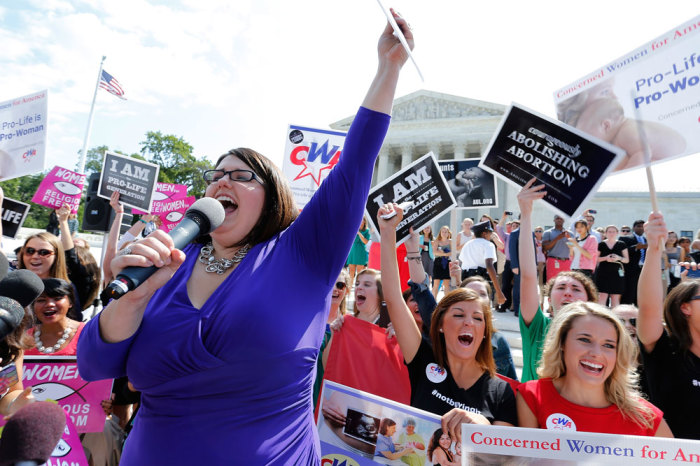New Birth Control Mandate Rule Still Infringes Upon Religious Freedom, Critics Say

Some religious freedom advocates have raised concerns that the Barack Obama administration's recent changes to the Health and Human Services Department's "preventive services" mandate have not adequately addressed their religious freedom concerns.
In light of recent major court defeats, HHS will now allow for-profit employers to contact the government directly for an exemption rather than a third party.
Last week, the federal government released a document about new "interim final regulations" regarding exemptions to the HHS mandate for entities to provide birth control coverage to their employees.
"These interim final regulations provide an alternative process that an eligible organization may use to provide notice of its religious objections to providing contraceptive coverage, while preserving participants' and beneficiaries' (and enrollees' and dependents') access to coverage for the full range of Food and Drug Administration (FDA)-approved contraceptives, as prescribed by a health care provider, without cost sharing," read the Summary.
As a compromise HHS had allowed for-profit entities not previously exempted from the mandate to fill out a form and send it to a third party who would then provide contraceptives, including those believed to be abortion-inducing.
However many plaintiffs against HHS argued that filling out the form and sending to a third party who then provided the contraceptives was a violation of their religious beliefs.
"The nonprofits can now directly inform the Department of Health and Human Services of their religious objections," reported The Washington Post.
"HHS and the Labor Department will then coordinate contraception coverage with insurers and third party administrators. The nonprofits still have the option to notify a third party directly."
The new rule came in response to legal defeats, most notably last month when the United States Supreme Court said that Wheaton College, a Christian higher education institution that sued the government over the mandate, did not have to fill out the forms to receive an exemption.
Some critics of the mandate argue that the new accomodation does not go far enough. Filling out a form that allows employees to recieve the objectionable services makes them complicit in the provision of those services, they say.
""Here we go again. What we see here is another revised attempt to settle issues of religious conscience with accounting maneuvers. This new policy doesn't get at the primary problem. The administration is setting itself up as a mediator between God and the conscience on the question of the taking of innocent human life," said Russell Moore, president of the Southern Baptist Convention's Ethics and Religious Liberty Commission.
The new rule was also criticized for continuing a two-tiered view of religious liberty wherein houses of worship are provided an exemption but other forms of religious expression are provided an "accomodation."
Lori Windham, senior counsel for the Becket Fund for Religious Liberty, said in a statement Friday that this was the "latest step in the administration's long retreat on the HHS Mandate."
"It is the eighth time in three years the government has retreated from its original, hard-line stance that only 'houses of worship' that hire and serve fellow believers deserve religious freedom," said Windham.
"Ninety percent of religious ministries challenging the mandate have received relief from the courts, and we are hopeful the administration's new rule will reflect the robust protections that have always been given to religious individuals in this country."
The Becket Fund is overseeing scores of legal challenges to HHS' birth control mandate across the country, representing both non-profits and for-profits.
With the three female Justices dissenting, the highest court in the land granted an injunction for Wheaton regarding the form.
"To meet the condition for injunction pending appeal, the applicant need not use the form prescribed by the Government," read the majority opinion.
"Nothing in this interim order affects the ability of the applicants' employees and students to obtain, without cost, the full range of FDA approved contraceptives."
At the end of June, the Supreme Court ruled in Burwell v. Hobby Lobby that two "closely held" for-profit companies could be exempted from the HHS mandate due to religious objections to some of the FDA-approved birth control products.
Americans United for Separation of Church and State, a group that has been supportive of the HHS mandate, lauded the interim rule.
Nevertheless Americans United Executive Director the Rev. Barry Lynn said in a statement that the new interim rules will not likely resolve the legal debate.
"At some point … we must face that fact that this debate is not about 'religious liberty.' It is about certain religious groups trying to impose their out-of-touch theology on unwilling American workers and students," stated Lynn.
"It's unfortunate that the administration has had to jump through so many hoops to meet the demands of ultra-conservative religious groups that refuse to accept cultural realities."




























